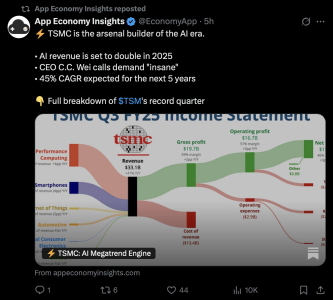Thorgalaeg
Deity
They are the same math, that's because GPU can do it. But AI dedicated cards do it through very specific dedicated fixed circuits while GPU do it through software overhead because it have to do other things too (the 32 and 64 bits you said for example). It is the same with dedicated Bitcoin mining ASIC cards. Any CPU and GPU can also do it but with much less efficiency.
BTW, lately there is an anti-AI paranoia in YouTube. Any minimally weird or surprising video is accused of being AI in the comments. People have gone of taking the most evidently AI generated videos as real to just the opposite:
BTW, lately there is an anti-AI paranoia in YouTube. Any minimally weird or surprising video is accused of being AI in the comments. People have gone of taking the most evidently AI generated videos as real to just the opposite:




